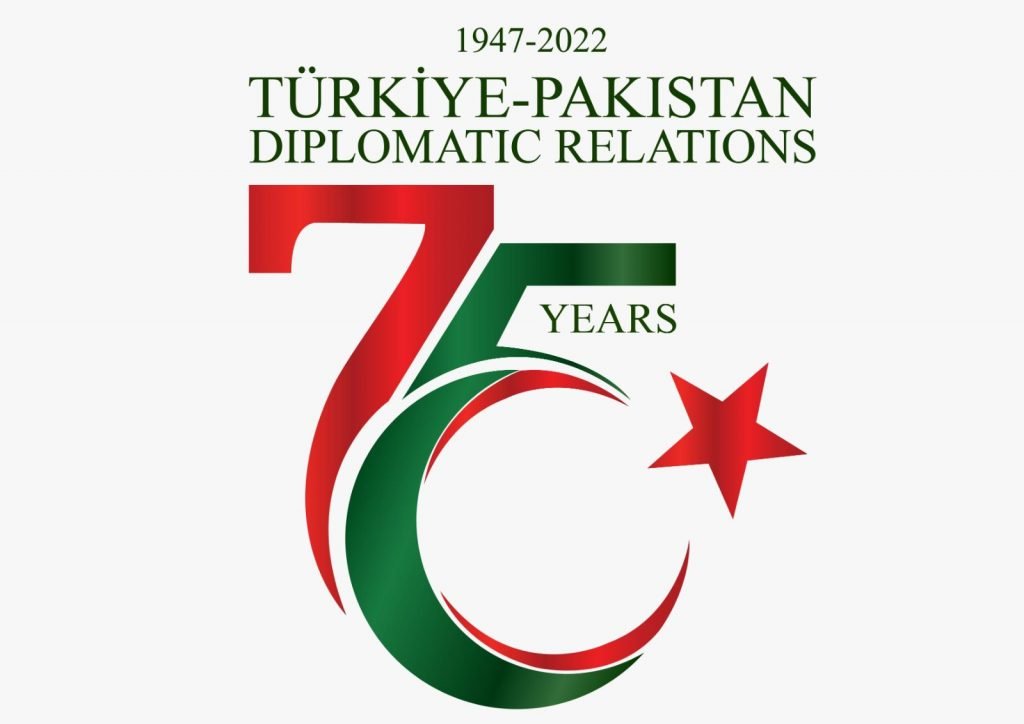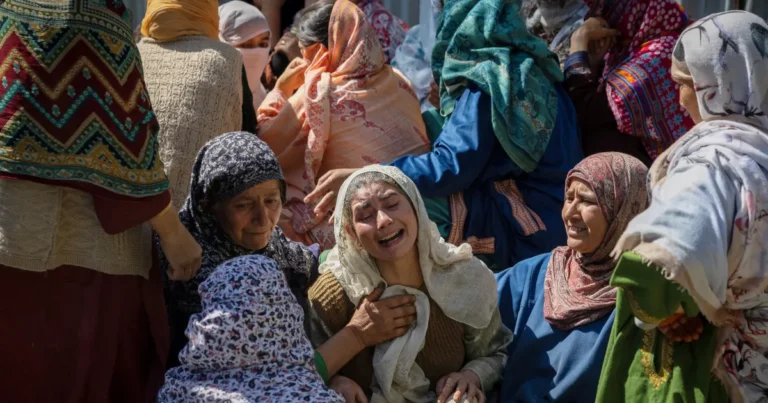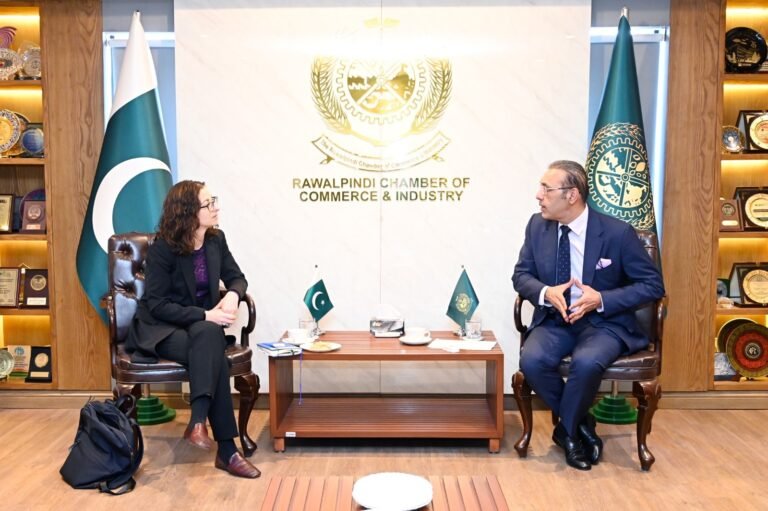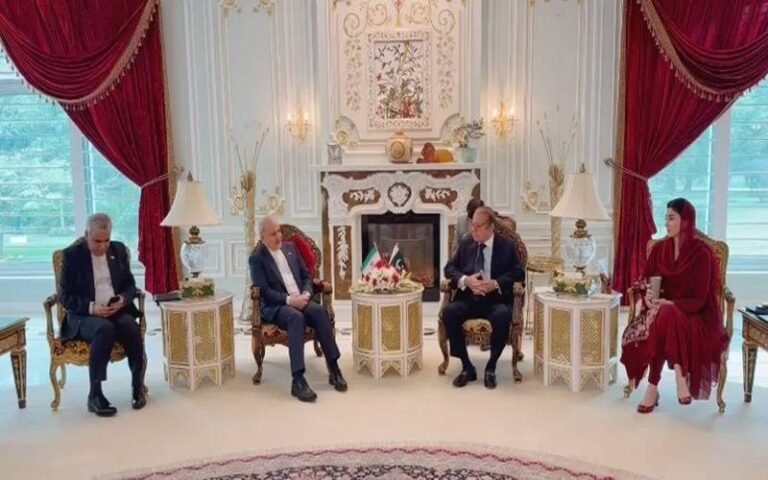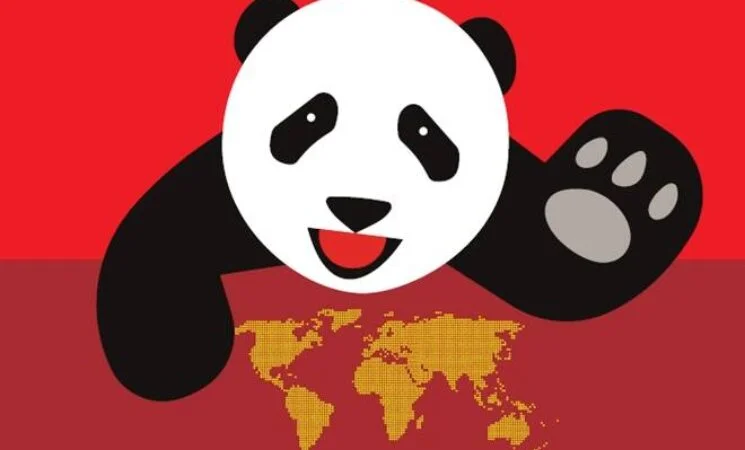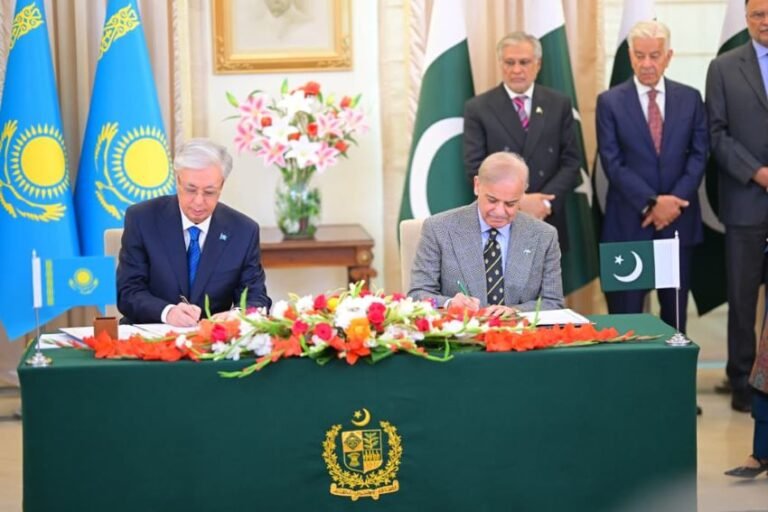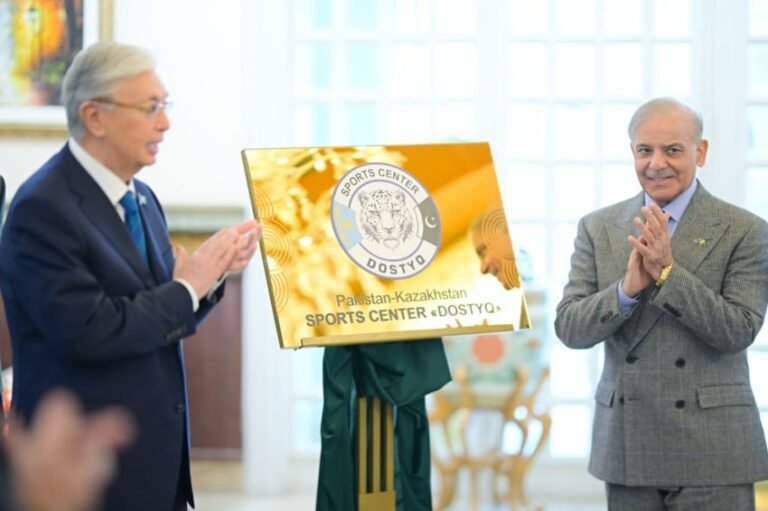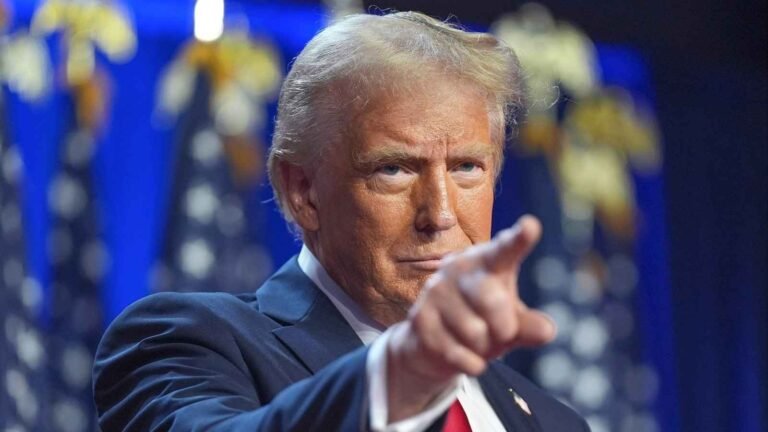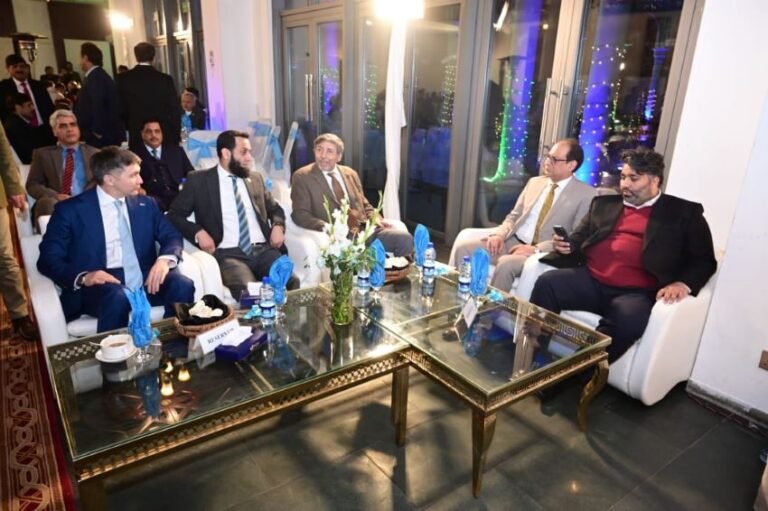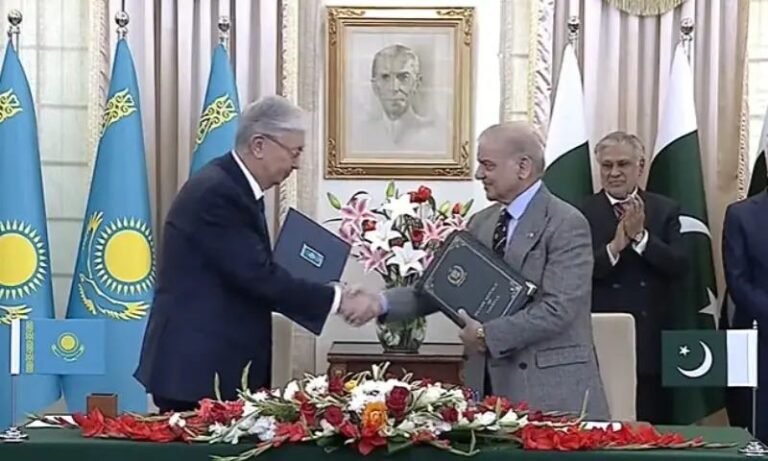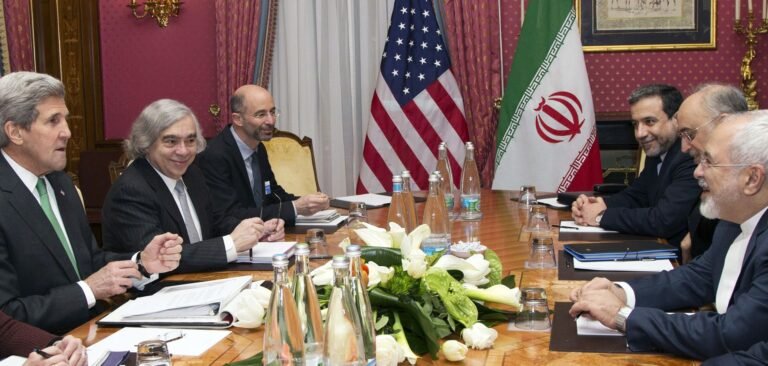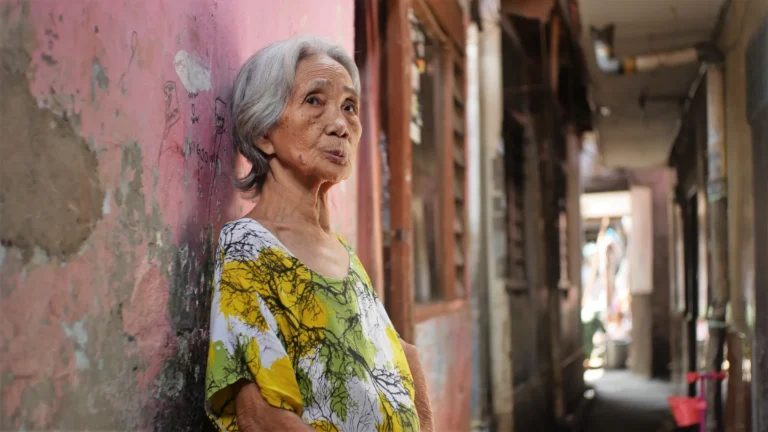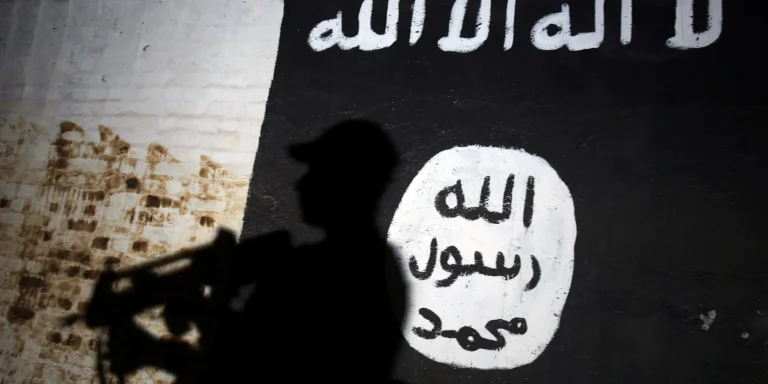Islamabad, 6 June 2022 (TDI): It has been 75 years since Pakistan and Turkiye established diplomatic relations. Turkiye and Pakistan have maintained close ties during both democratic and military governments, demonstrating the strength of their relations.
Both countries have good relations and are referred to as Kardeşlers (“brothers” in Turkish). Relations between the two countries trace back to generations, long before the two states were formed.
More precisely, during the Turkish War of Independence, the Muslims of the northwestern British Raj donated financial aid to the waning Ottoman Empire.
In the following years, Turkiye (previously known as Turkey) became a sovereign state, and Pakistan gained independence.
As a result of the British Raj, Muslims in the Ottoman Empire considered the Ottoman Sultan to be their Caliph, the Caliph of Islam, and the Caliph of all Muslims.
Consequently, Pakistan and Pakistanis have had a favorable reputation in the country and among Turks for several decades.
Geo-Strategic location
In terms of geo-strategic position, Pakistan’s and Turkiye’s are distinct and comparable. After the Cold War, the Balkans, Caucasus, Persian Gulf, and the Middle East, all of which were hotbeds of conflict and instability in the post-Cold War era, made Turkiye a geo-strategic powerhouse.

Similarly, Pakistan is strategically located at the crossroads of Central Asia, West Asia, and South Asia, adjacent to war-torn Afghanistan, with ethnic ties on both sides of the Durand line. After September 11th, Pakistan became a key player in the fight against terrorists.
In light of the fast changes in international relations following September 11, Pakistan and Turkiye both play crucial roles in their respective conflict-ridden areas.
Religious and Societal Ties
For millennia, Turkic and Iranian people dominated Central Asia, South Asia, and the Middle East for millennia, which had a profound effect on both Pakistan’s and Turkiye’s cultures.

The Hanafi school of Sunni Islam, which was accepted by the Ottoman Empire and the Mughal Empire, is the majority religion in Turkiye and Pakistan.
Moderate Sufism has a long history in both countries, and religious leaders from both countries communicate frequently.
Political Ties
Since 1947, Turkiye has been eager to forge a close relationship with other large non-Arab Muslim countries, such as Pakistan. Pakistan’s views on the Muslim world were aligned with this.
Therefore, relations with Turkiye were cordial from the start, indicating that the two countries would continue to collaborate closely, first through the Baghdad Pact and later through the Regional Cooperation for Development (RCD), which eventually evolved into the current Economic Cooperation Organization (ECO).

Both Turkiye and Pakistan are members of OIC and the D-8 Organizations. They frequently back each other’s viewpoints on regional and international problems like Kashmir and Palestine.
After Saudi Arabia and China did not oppose the United States’ move, the Financial Action Task Force (FATF), a global monitor on terror financing, placed Islamabad on its grey list in June 2018. In the end, it was only Turkiye and Pakistan who opposed the decision.
“Support the Turkish Lira” became a national movement in Pakistan in August when the United States imposed sanctions on two Turkish Ministers in response to the incarceration of American pastor Andrew Brunson in Turkiye.
Recep Tayyip Erdogan of Turkiye is also the first foreign dignitary to address Pakistan’s National Assembly a record-breaking three times.
As Prime Minister in 2009 and 2012, and as President in 2016, Turkish President Recep Tayyip Erdogan addressed the Pakistani parliament.
Economic Ties
There have been friendly ties between Pakistan and Turkiye for a long time now. Trade between the two countries currently stands at around one billion dollars.
In the past, Turkiye placed duties on our textiles, causing a temporary halt to trading. Over the next three years, trade volume is expected to increase by $5 billion due to a recent visit to Turkiye by Prime Minister Shehbaz Sharif.
Turkiye has a lot of tourism potential to go along with its wealth of construction knowledge. In the past, Pakistan has waived visa rules for Turkish investors in order to encourage them to engage in Pakistan’s economy.
Defense Ties
They were both members of the Central Treaty Organization, a Muslim-majority organization that supported Western interests in the 1950s. In a multi-polar Eurasia, the two countries are building an alliance.
According to the Stockholm International Peace Research Institute, Turkish weapons exports to Pakistan totaled $112 million between 2016 and 2019.
Since then, Turkiye has been Pakistan’s fourth-largest arms supplier and the third-largest market for Turkish exports.

An additional $3 billion in Pakistani orders for four MILGEM Ada-class corvettes, two of which will be built in Pakistan, and thirty T-129 Atak helicopters will be delivered by Turkiye, bringing the total to over $4 billion.
Recent Developments
Prime Minister Shehbaz Sharif and Turkish President Recep Tayyip Erdogan met one-on-one at the Presidential compound in Ankara, where they pledged to expand their strategic and economic connections and promised to eradicate terrorism.
PM @CMShehbaz has arrived in #Ankara . The Prime Minister was received by 🇹🇷 Minister of National Defence @HulusiAkarMSB_ ‼️
➖The visit will reinforce existing ties & broaden bilateral coop in trade, connectivity, health, edu, culture & ppl to ppl ties.
🇵🇰🤝🇹🇷#PakTurkiyeAt75 pic.twitter.com/owU7hoQreU
— Pakistan Embassy Turkey (@PakinTurkey) May 31, 2022
In his remarks, Turkish President Recep Tayyip Erdogan noted that he and Prime Minister Sharif had a wide-ranging discussion about internal and international matters. Several new areas of bilateral collaboration had been agreed upon, according to him.
A Memorandum of Understanding (MOU) was signed by Pakistan and Turkiye to improve bilateral cooperation on a variety of issues, including trade, economics, communication, and the environment.
Prime Minister Shehbaz Sharif also met the Turkish Foreign Minister, in Ankara. At the meeting, Pakistan and Turkiye discussed strategies to improve their bilateral ties during the meeting.
Sharif remarked that Pakistan wanted to enhance its bilateral, commercial, and cultural ties with Turkiye while arguing for the Turkish business community to invest in Pakistan.
Increasing bilateral trade to $5 billion over the next three years was a top priority for Prime Minister Shehbaz Sharif. Prime Minister emphasized promoting cooperation between the two countries in a wide range of industries, including the automobile sector and agriculture.
Highlights of PM @CMShehbaz visit to #Turkiye accompanied by FM @BBhuttoZardari and a high powered delegation.
🇵🇰🤝🇹🇷#PakTurkiyeAt75 pic.twitter.com/vPTfGogNpg
— Spokesperson 🇵🇰 MoFA (@ForeignOfficePk) June 2, 2022
Turkiye and Pakistan celebrated 75 years of diplomatic relations with zeal and committed to better diplomatic ties in the future.
Both countries have a long history of cultural and historical links as well as military ties. There has been an increase in business ties between the two countries in recent years.

